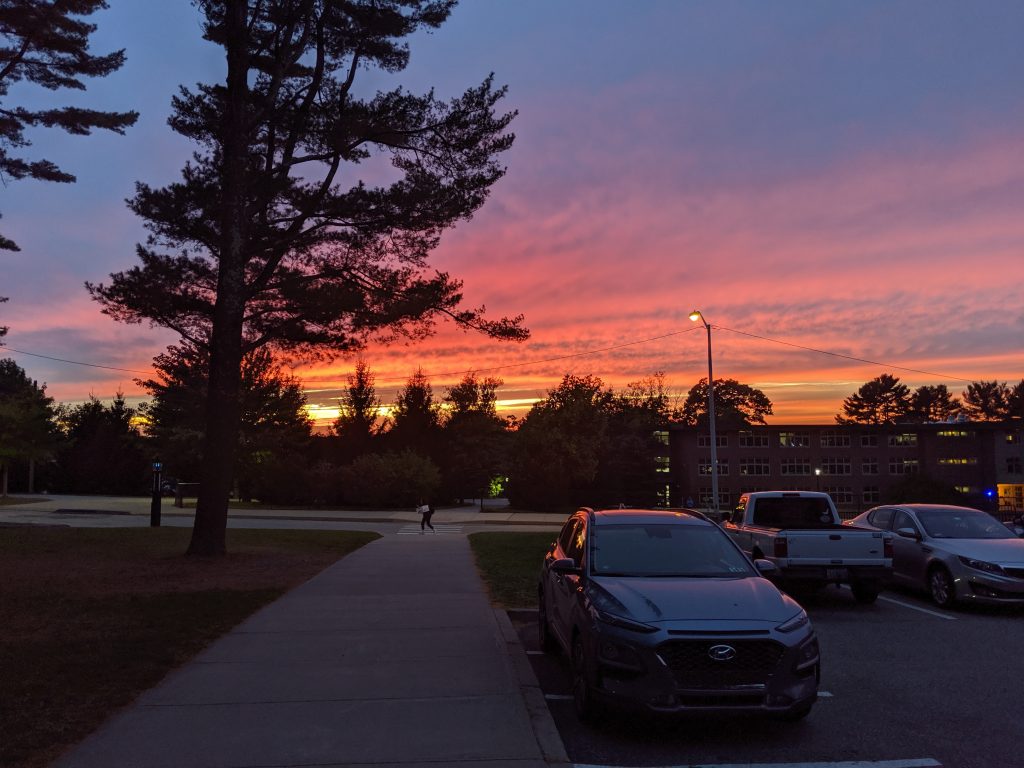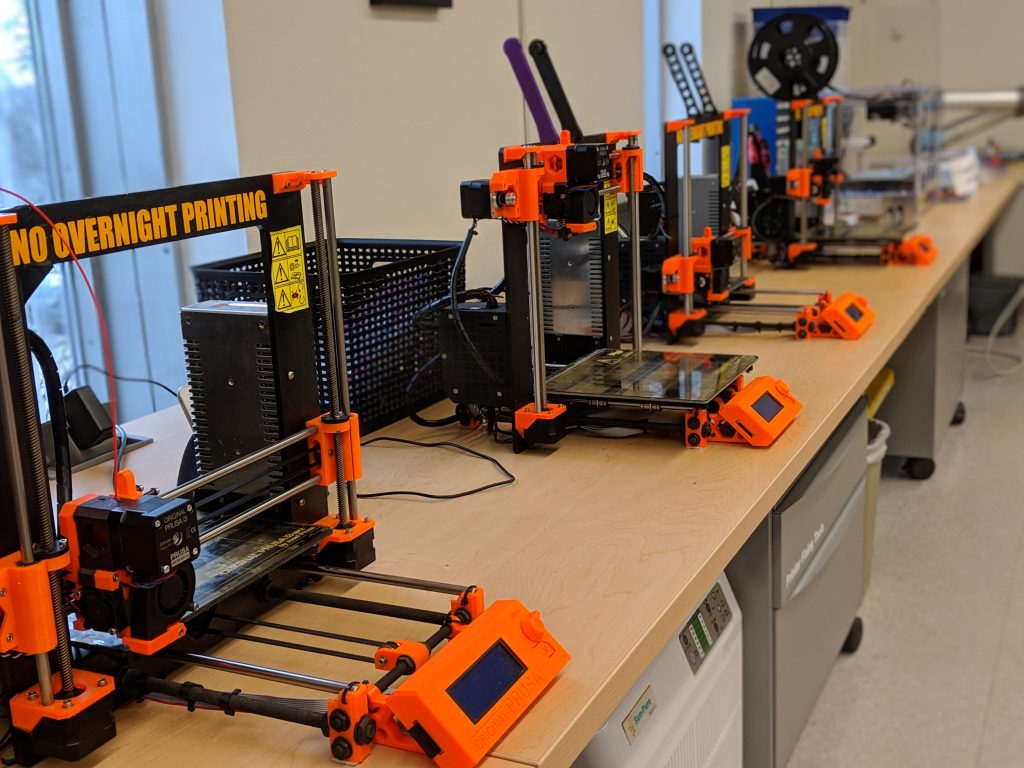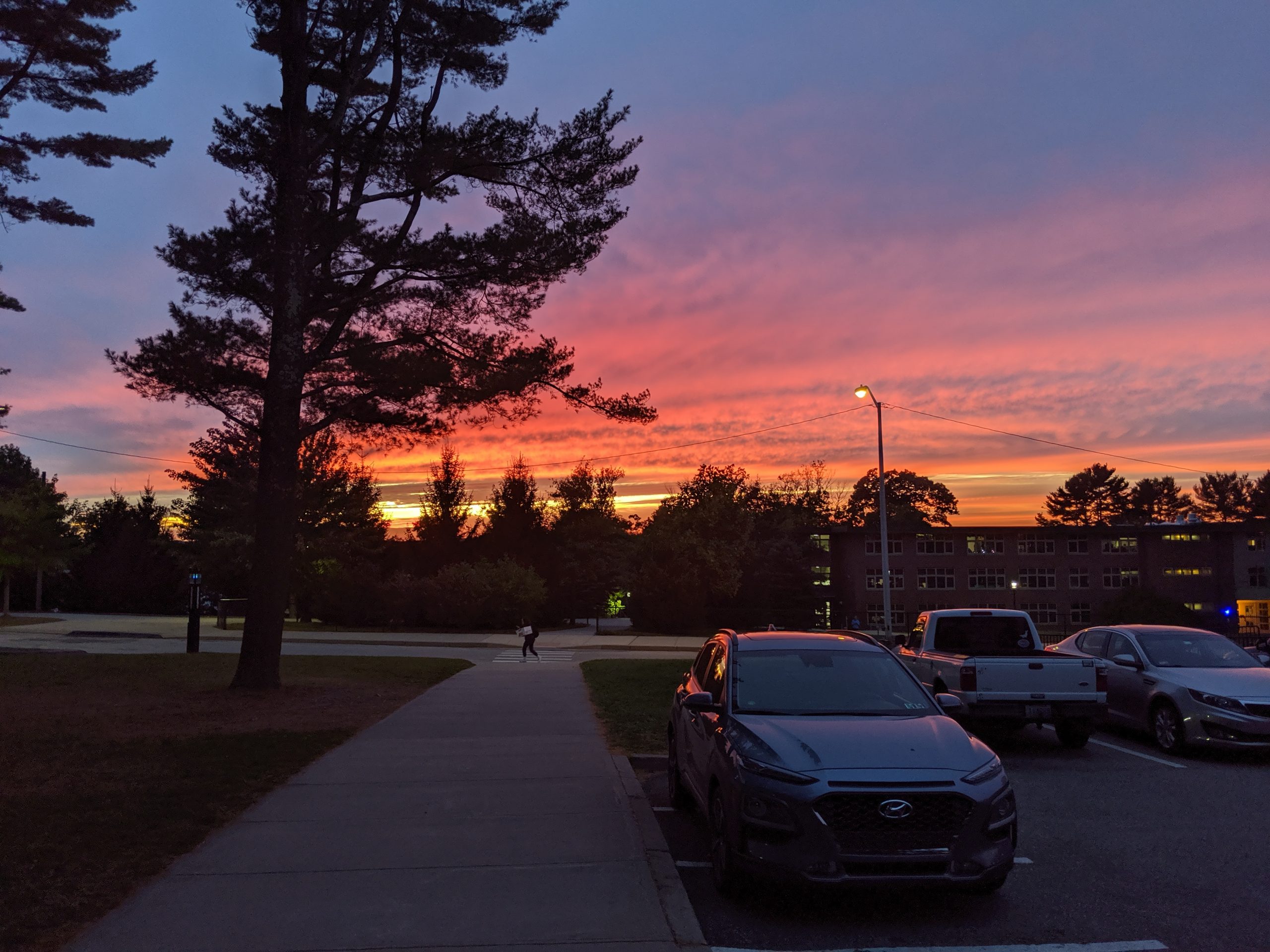
This holiday season, I had more to celebrate than the dawn of a new decade– as of this December, I have passed the halfway point of my three-year graduate school process. Though we’ve discussed grad school here on Concerning History before, my experience at the University of Rhode Island differs from our previous looks in at least one significant way: rather than pursuing only a degree in history, I’m tackling a degree in library science as well, with an eye towards working not in the historical field, but in librarianship.
In this sense, I’ve known exactly the utility I will receive from that degree since I started: qualifications for the field of work I wish to enter. A degree in history is intended to pair well with it, giving me advanced subject knowledge in an academic discipline I hope to work closely with in an academic library setting. With this in mind, I’ve had no illusions on exactly why I am studying and what I hope to get out of the experience. This clarity has given me the opportunity to reflect more on the disciplinary differences between my two fields, as well as the way that each program is managed—for while I can work towards them at the same time, each are radically different from one another.
Now halfway through the grad school experience, I thought it would be worthwhile to share some of my most significant reflections.
Library Skills versus Historical Knowledge
Fundamentally, history and library science have very little in common as fields of knowledge. History is decidedly an academic discipline, characterized by ongoing study. The research that students of history do shares a model with professional historians, distinguished primarily by differences in experience (and associated factors of quality, time, and so on). Library science, meanwhile, is a discipline oriented towards skills and training. As the primary function of that degree is to work as a professional librarian, assignments are geared towards acquiring the skills to be able to do that work—though short of actually doing it. As such, many library assignments come across as tedious or simple if one has already grasped the concepts they wish to impart. This is in contrast to the creative nature of historical research, where students often have much more control over their assignments and research.
Prior to starting at URI, a library co-worker told me that many people who have spent significant time working at a library tended to find the pursuit of the degree easy, as they have already experienced much of what is being taught as “something to expect.” Thus far, I’ve found that accurate, while in history there are always new subjects to explore and improvements to be made to one’s own research and writing methods. In this sense, I think the library degree could benefit from a greater emphasis on fieldwork– though that may be hampered by the following reality.
Online versus In-Person
At URI, the library program is nearly entirely online, while history meets only in person. As such, the work for the library classes is thus almost entirely self-directed, with very little faculty guidance, fixed to a loose weekly schedule to give coherence to readings and assignments. History courses, meanwhile, meet once per week for a lengthy, seminar-style discussion assigned readings with fewer, more in-depth assignments.
There’s a certain irony to the library program’s online focus, as the discipline places a significant emphasis on building a personal community of practice within the field—getting to know other library professionals and the work they do. While the online program is conceptually able to bring people together in a much larger geographical area, the impersonal communication through online conversation forums it necessitates stilts most serious discussion and serves as a digital barrier to truly familiarizing oneself with your student colleagues.
Meanwhile, while my history courses only meet once per week, their seminar-style discussions allow for far more intellectual experimentation and exploration, as we’re given the opportunity to freely consider and argue different ideas and viewpoints. Seeing our colleagues, even once a week, is more than enough to get an idea for their research interests, ideas, and style of thinking in a way that the conversational requirements of library forums only attempt. While my above critique is intended without judgement, this is a reality I have more personal reservations against. There seems to be a trend throughout the library field to move academic programs online, but this impulse seems to be at odds with community building and developing the interpersonal skills needed to work closely with future library coworkers.
Learning Between Professors and Colleagues
One similarity between both disciplines, meanwhile – or perhaps the nature of grad school in general – is the further erosion of the barrier of expertise between professor and student. Though it has varied based on the class, students have conducted the vast majority of discussion in my history classes, asking questions of each other and leading most analyses of the texts we read. Where we have disagreed with the professor’s own takeaways and conclusions, we’ve debated and traded interpretations. Though to learn from the expertise of seasoned historians is always rewarding, it is just as much to feel as something of an equal whose views are just as worthy of consideration.
Online discussions within the library discipline tend to take on a similar character, given in large part due to how varied library work can be. Like myself, many students enter the field with prior library experience, and so when discussing subjects with which one or some of us may have previous work experience, students trade stories of how they have seen or done work and what was true for them. The professors have welcomed these exchanges, as they help to illustrate the diversity of work in the field and provide recent hands-on examples that class work cannot convey.
This is all best symbolized by how I have referred to my professors thus far. All have introduced themselves on a first name basis: none have insisted upon the formalities of “Professor So-and-So” or “Doctor Such-and-Such.”

It was another library co-worker who, prior to starting at URI, told me that while the library degree would help me get a job, the history
degree would teach me to think. Once again, I’ve found that entirely accurate. While I’ve spoken critically of my library science experience thus far, it is not because I’ve found the experience underwhelming or not worthwhile, but rather that I see it as, rather than an opportunity for academic growth, an extended training process–a style of learning I am not necessarily used to. Reading about budget varieties and summarizing them in an online post I expect none of my colleagues are reading is not a mentally challenging process, though is one that will help familiarize me with that valuable information, should I ever be required to budget. When larger projects have allowed us to do the actual work of a librarian, I’ve found all I’ve learned to be valuable and the work enjoyable. Rather than the history degree, though, where training is imparted by doing, the library degree is focused on training in the present, within an eye to “doing” in the future.
This may well be out of necessity–given the dynamic nature of library work, it is simply very difficult to teach practical skills given they may vary so dramatically depending on one’s experiences and workplace. As such, accurately evaluating my experience at all may be impossible until I’ve actually entered the working field and am able to fully grasp the results of my training. Compare this to historical research, which I am able to visibly see improve over time.
Altogether, I’ve been very grateful for my graduate experience thus far, and have found it extremely rewarding. The connections I’ve made both in the history and library fields have led to more than a few outside-the-classroom discussions really digging into the grit of both disciplines–conversations which I think both disciplines should encourage. I’ve had access to great work opportunities supported by, and supporting in turn, my learning experiences, which seem only more plentiful as I come closer to graduation– once again useful in reinforcing the lessons of the classroom. Perhaps the most exhilarating thus far has been my classroom experience as a teaching assistant for the history department—though that is a post for another day.
